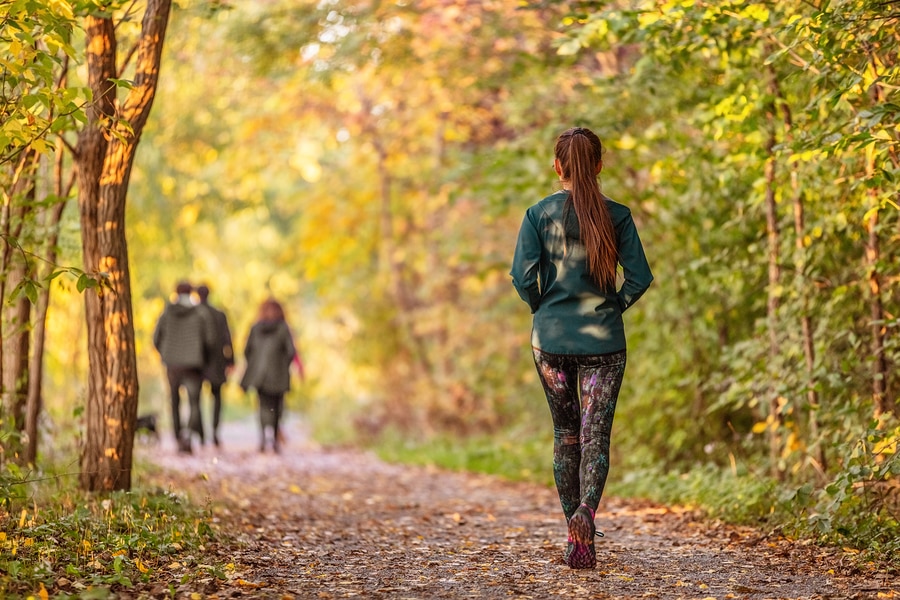5 Strategies to Deal with a Forced Pause in Life

The last month has been a time of great, worldwide upheaval in the wake of COVID-19. As I write, some US states are taking the difficult decision to shut down all “non-life sustaining” businesses and restrict the movement of people. And, we may be on track for a full lock down of the country as has been implemented in Italy, Spain and France.
This has jolted many of us out of the frenetic pace of our daily routine into a “forced pause” in our lives. I experienced a personally-induced forced pause in my life in 2017 while struggling through a deep bout of depression and have emerged on the other side a new person with a new routine. Others of you may have experienced a past forced pause in your lives caused by job loss or the serious illness of yourself or a loved one.
Whether you have experienced a forced pause in the past or this is a new experience for you, here are some strategies that I have found immensely helpful to cope with these kinds of circumstances.
Get Outside
According to the EPA, Americans now spend 93% of our lives indoors, with 87% being spent inside a structure and another 6% being spent inside an automobile. Our ancestors spent 100% of their time outside and we now spend virtually no time in the fresh air. This has many adverse health effects.
One of the reasons is that the concentrations of certain pollutants including cold and flu viruses can be 2-5 higher indoors versus outside.
In addition, a meta-study by the American Chemical Society, which summarizes the findings of ten related studies, concludes that being outside and moving for even five minutes a day can have a huge, positive impact on mood and self-esteem.
I’m seeing boatloads of people on nature trails and walking my neighborhood – come join us (while remaining six feet apart, of course!)
Get Meditating
When I was in my 30’s sprinting from one commitment to the next and trying to squeeze every ounce of productivity out of every minute of every day, I would have never dreamt that meditation would become part of my daily routine. This article cites study after study that links meditation with positive health outcomes including decreasing anxiety and depression, improving attention span, reducing chronic pain and decreasing blood pressure.
I have cycled through many different approaches to meditation with my current favorite app being Insight Timer. A couple of perspectives:
- This does not need to be an hour-long Zen voyage. I see huge benefits when meditating for as little as five minutes. I average about twelve minutes a day.
- If you’re new to meditation, be patient and gentle with yourself. It could take weeks or months to find your groove. I’m two years in and I still invariably catch my monkey mind careening from one topic to the next. Now instead of mentally screaming, “You’re doing it wrong, David!” I instead smile and gently guide my attention back to my breath.
Get Reading
Some of my favorite memories as a kid were curling up with a book. I vividly remember how much of a treat it was to go to the Allentown Public Library, grab a stack of new books and lounge in the gigantic baseball glove-shaped chair reading a good book while waiting for my mom to check out.
Continuing to hammer away on the health theme, this article provides a great synopsis of the benefits that can be directly linked to reading including improving short-term memory, reducing anxiety and depression, and improving sleep quality (when reading real books, not e-readers.)
I love historical fiction and am currently working my way through the seven book Clifton Chronicles series.
Stacy and I do a “book study” three or four mornings each week. Right now we’re loving Dr. Joe Dispenza’s Breaking the Habit of Being Yourself.
And if you’re looking at forced pause in your routine with an openness to view life in new and different ways, check out either Gary Zukov’s The Seat of the Soul or Michael Singer’s The Surrender Experiment – two game-changers for me!
Get Creative
A forced pause in life gives you the gift of time. Another way to spend that newfound time is on a creative pursuit. Here’s a shocker – doing something creative also can have positive health benefits. The American Journal of Public Health conducted this study and found that a creative pursuit can improve mood, decrease anxiety, enhance cognitive function, reduce susceptibility to chronic illnesses and boost your immune system.
My creative outlet is, you guessed it – writing. What’s yours? Consider grabbing your pencils, paint brushes, PC or any other tool that helps you be creative and patiently give yourself permission to completely immerse yourself in the activity.
Get Chatty
With all due respect to the severity of COVID-19 or another life-altering change that is forcing you to push pause on your life, sometimes it’s important to laugh too. My good friend and fellow introvert Bill recently remarked that, “We have been preparing for this moment (as introverts) for all of our lives!”
And while your natural inclination may be to hunker down and fully self-isolate, particularly if you’re working your way through depression, it is critical that you maintain human contact in some form.
Human relationships are another great tool to help boost your well-being. Although it does not cite a specific study, this article by The Mayo Clinic Staff lists the benefits of good friendships which include links to decreased depression and anxiety, reduced blood pressure and reduced body mass index.
So, while it may be difficult right now to establish new friendships, consider picking up the phone and calling a good friend to rekindle a long-dormant friendship. This is particularly important to check on your extroverted friends who may be especially hard-hit by social distancing!

